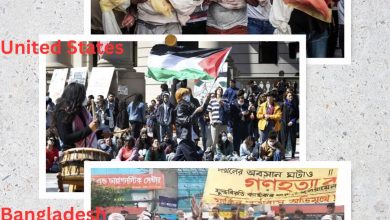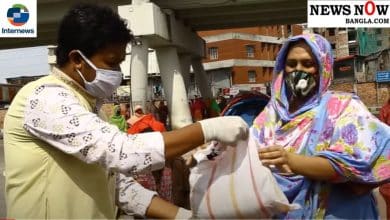Bangladeshi architect Marina Tabassum has won the prestigious Soane medal 2021
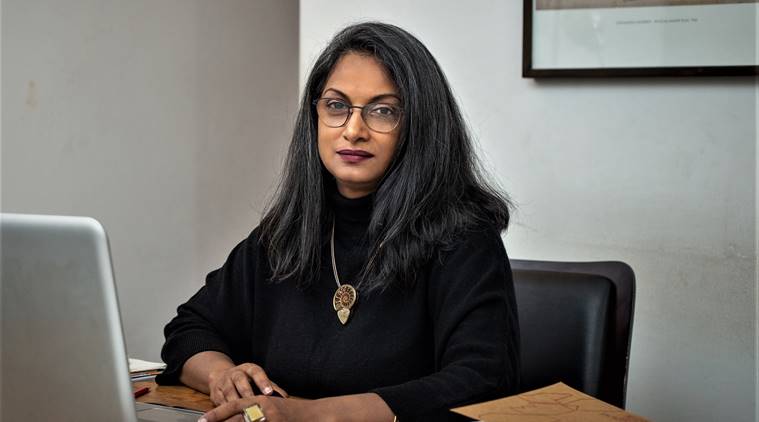
The 2021 Soane Medal has been announced on Tuesday (November 16), naming Bangladeshi architect Marina Tabassum this year’s winner for her humanitarian buildings.
She is the first architect from the global south to win the prestigious award.
The prestigious architecture award, presented annually by Sir John Soane’s Museum in London, celebrates a leading architect’s career and body of work so far – previous winners are Rafael Moneo, Denise Scott Brown and Kenneth Frampton. The 2021 award represents its fourth iteration, and it will be, as always, accompanied by the Soane Medal Lecture, which will be given 16 November 2021, by Tabassum at the museum’s Lincoln’s Inn Fields home.
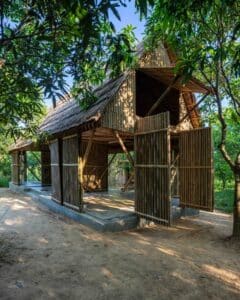
For the people of coastal Bangladesh, the monsoon can bring untold torment – and, occasionally, unexpected joy. Every year from June to October, in the Ganges delta region where the country’s three major rivers converge, the waterways swell and riverbanks burst, causing catastrophic flooding. The torrential rainfall is joined by heavy glacial runoff from the Himalayas, exacerbated in recent years by global heating. Homes and livelihoods are lost overnight. But the meltwater also brings cascades of sediment that, a few months later, leave unpredictable gifts – new strips of land, known as “chars”, rising from the riverbed.
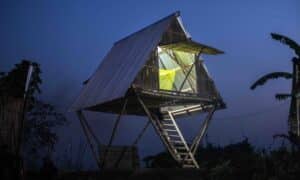
“You can’t really call it land,” says Marina Tabassum, who has been awarded the Soane medal, the first architect from the global south to win the prestigious award. “It is wetness. It belongs to the river. But for the landless, the chars offer some years of relief. They provide a place to fish, cultivate and settle with their families.”
Tabassum turned her attentions to the delta region last year when the pandemic struck and work in her Dhaka office, MTA, slowed down. It gave her time to pause and reflect, and reassess where the skills of an architect can make the most difference. The national lockdown had caused many to lose their jobs, increasing homelessness in the region, with countless delta-dwellers forced to live under makeshift tarpaulin shelters.
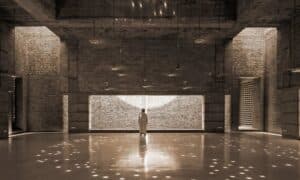
“As architects we have a responsibility to these people,” she says. “The construction industry contributes half of all global emissions, but the people being affected by sea-level rise in the coastal areas have zero carbon footprint.”
Coming hot on the heels of the compromised deal agreed at last week’s Cop26 climate summit, her lecture, to be given at Sir John Soane’s Museum on Tuesday evening and streamed online, couldn’t be more timely. Hers is a model of light-footed practice, in tune with what she calls “the wisdom of the land”. It is an approach that prioritises local skills and materials over technocratic solutions, working in harmony with natural cycles and using indigenous knowledge to intervene with minimal means, without “the roaring noise of architecture”.

Last year, Tabassum and her team used the pandemic lull to develop a low-cost modular house kit for the landless char dwellers. They had previously researched the region’s popular flat-pack homes, which are designed to be dismantled and moved when needed, but the cost of £1,500, along with their requirement for carpenters, puts them out of reach of many. MTA designed a simple space-frame system using lengths of readily available bamboo, connected with steel joints, that could house a family of four for £300, and be built by residents themselves. The Khudi Bari (Tiny House) comprises a pitched-roof upper level sleeping platform above a ground floor of compacted earth, with the structure clad in panels of woven grass, or whatever local materials are to hand. Four families have been rehoused so far in Char Hijla, southern-central Bangladesh, to test how the design works, with 100 more homes on the way.
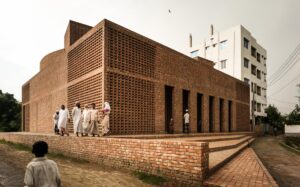
Born and based in Dhaka, Tabassum has been prolific in her country since the mid-1990s, when she set up her eponymous practice there. She talks about ‘the architecture of relevance’, a topic she discussed with us more this summer, when invited by Mexican architect Frida Escobedo, who nominated her among her chosen ‘five creative leaders of the future’ in our celebratory 25th anniversary October 2021 issue of Wallpaper*.
Creating work that feels in tune with its context – in environmental ways, but also socially – is crucial in the Bangladeshi architect’s approach. Critical examples include the mesmerising minimalist architecture of the 2012 Bait Ur Rouf Mosque in Dhaka; and ongoing work at Rohingya refugee camps in Cox’s Bazar, in south-east Bangladesh. She considers the design for Dhaka’s Independence Monument and Liberation War Museum as her breakthrough work.
‘I consciously moved away from real estate – and profit-driven work – in my practice,’ says Tabassum. ‘We are a local, very “Dhaka” practice. There is so much to do in Bangladesh.’
The studio also does a lot of self-initiated research. It may be small – just ten people strong at the moment – but the architect hopes to keep it that way, focusing on work that feels meaningful to its community, such as Tabassum’s research work on coastal areas of Bangladesh, for which she raised funding, and which is now becoming a series of modular homes on coastal sites. And while she doesn’t take part in many big, international competitions, Tabassum is open to opportunities and what the future might bring. ‘I take the opportunities that come my way and follow my instinct,’ she says.
‘I am honoured to have been chosen to receive this recognition from such a distinguished institution as the Sir John Soane’s Museum,’ Tabassum says. ‘Winning the Soane Medal means a great deal to me. My current work is focused on the twin crises of Bangladesh: the plight of refugees, and the heightened threat to our population of flooding, exacerbated by global warming. Both factors have led me to focus on prototyping low-impact, mobile housing that can be delivered at the lowest cost possible for those in need. Our goal is to make it an open source knowledge that can help people build their own houses, with the help of a manual with detailed instructions.’
(Source: The Guardian/Wallpaper)



